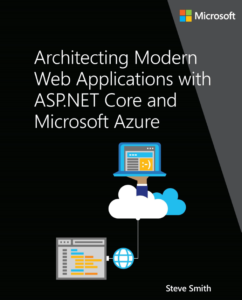Final Verdict on Haswell Ultrabook

I’ve had a pre-release Intel Ultrabook with the new Haswell processor in it for about two months now, so it’s time for one last review of the device. You can read my previous reviews:
Overview
This device has met or exceeded my expectations for performance, power use, and overall fit and finish. The only thing that keeps me from saying I absolutely love this machine is the fan noise, which I mentioned in my initial review and which is a known issue with the preview device. I can only assume that the production quality Haswell units being shipped imminently by a variety of OEMs will not have such issues. I’m still using the device as my primary day-to-day laptop (the fan noise is only an occasional, minor issue) and expect to continue to do so for some time.
The Last Month
During the last month I’ve had the opportunity to use the device quite a bit. It’s gone back and forth with me daily to the office, as it sees use both there and at home. It’s a nice size and weight for this kind of daily commute, and the battery life is great, too. It’s also flown with me to Bulgaria, where I presented with it for an all-day workshop and a packed conference session at DevReach 2013, as well as seeing me through two days of meetings at Telerik HQ in Sofia. While in Bulgaria, I was able to connect and project successfully every time to at least three different projectors, which trust me is not always easy (and a reason many speakers travel with multiple laptops). Flying to Sofia, Bulgaria from Cleveland, Ohio involves several long flights, and it’s nice being able to pull this out of my bag, slide it into the seat pocket in front of me, and then easily pull it out and use it for an 8-hour long flight to work on my slides and demos, all on battery power (alas, no upgrades or in-plane power for me, but no worries from the laptop front!).
Back in Ohio, last week Telerik hosted an all-day workshop from our Hudson, Ohio training center, where I was also a presenter. Once again, the Ultrabook proved to be great, and worked flawlessly in its native 1920x1080 resolution with the HD projectors and supplied HDMI converter cable. It’s worth noting that my compatriots’ Lenovo laptops did not (in fact, never) work as well to present from, due to some driver issues they’ve been fighting with for some time.
I have not tried installing the latest Windows 8.1 on the machine yet. My fellow reviewer Alvin Ashcraft has some hiccups that may have been related to his installation of 8.1 on his unit, however mine has been running flawlessly with Windows 8.
Here is a list of the software that I’m typically running daily with this unit:
- Visual Studio 2012 with Telerik JustCode
- Office 2012 (Outlook, PowerPoint, Word, Excel)
- SQL Server 2012
- Lync
- Skype
- DropBox (3 reasons you should be using DropBox)
- SkyDrive
- GitHub / TortoiseHg
- Chrome
- IE
Most of these are running concurrently at any given moment. I don’t usually have more than one instance of Visual Studio running at a time, but occasionally I will have 2 or even 3 VS instances running along with 2 separate PowerPoints as I prep for a presentation. Again, no issues. The touch screen is nice, too, but mostly just for scrolling and occasional zoom in/out for applications that support touch gestures for this. It’s not a tablet, and most of the work I’m doing with it is constructive, not consumptive, so keyboard/mouse tends to be more productive than touch UI. However, I do think that in the near future we’ll consider display devices that do not support touch to be broken, so having it (and a very nice, smooth, implementation of touch) is definitely nice. It’s also worth noting that it’s a very nice touch interface combined with a true HD 1920x1080 resolution an an Ultrabook form factor. A very nice combination, indeed.
I would like to thank Intel for the opportunity to review this device, and I hope that by sharing my experience I’ve helped them and you to have a better idea of whether such a machine will suit your needs. If you’re in the market, my friend Julie has been posting her thoughts on a variety of Ultrabooks currently available as she tries to choose one to suit her needs.
Disclosure of Material Connection: I received one or more of the products or services mentioned above for free in the hope that I would mention it on my blog. Regardless, I only recommend products or services I use personally and believe my readers will enjoy. I am disclosing this in accordance with the Federal Trade Commission’s 16 CFR, Part 255: “Guides Concerning the Use of Endorsements and Testimonials in Advertising.

About Ardalis
Software Engineer
Steve is an experienced software architect and trainer, focusing currently on ASP.NET Core and Domain-Driven Design.
